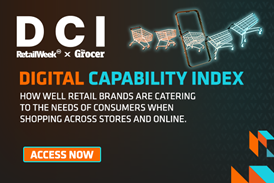‘Retail bosses must take personal responsibility for racial equality’

As The Black Farmer founder and CEO Wilfred Emmanuel-Jones prepares to speak at day one of RWRC’s Virtual Leaders Summit on November 10, he shares the motivation behind building his brand and what it has taught him about how leaders, and their teams, can break through the confines of race, convention and tradition
Already have an account? Sign in here




















